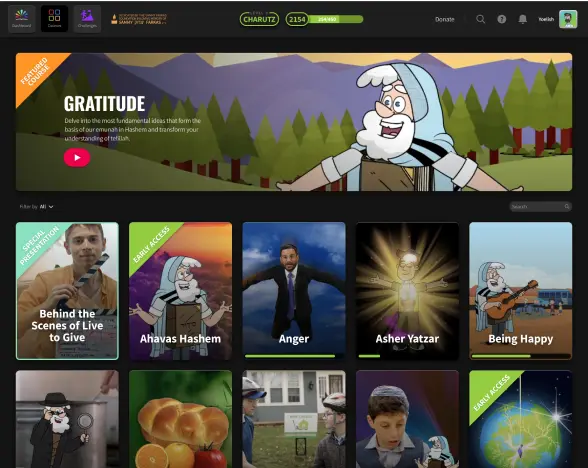
Judaism’s View on the World: From Duties to Daily Meaning

Judaism’s View on the World: From Duties to Daily Meaning
Have you ever noticed how there’s so much talk about our "rights" nowadays? It seems every commercial, protest, and advertisement reminds us about things we deserve. But here’s a question: have we lost sight of the bigger picture? What if, instead, we focused on what we can do for others and the world around us?
This fresh perspective may be just what we all need. Judaism has promoted this idea for thousands of years: the true foundation of a meaningful life is not about what we can get, but about what we can give.
Moving From Rights to Responsibilities
Modern Western society is overflowing with talk of "rights": human rights, consumer rights, students’ rights, and the list goes on. Yet, did you know there isn’t even a classical Hebrew word for "rights"? Instead, the Jewish worldview emphasizes duties and responsibility.
For example, in Jewish tradition, charity (tzedakah) isn’t about a poor person demanding help; it’s about the privilege we have to give. Likewise, doctors are reminded of their responsibility to care, rather than a patient’s right to demand care. It’s a subtle shift, but it changes everything: instead of focusing on what the world owes us, we focus on what we owe the world.
Psychology and Jewish Wisdom: The Power of Purpose
Research by psychologist Dr. Adam Grant shows that people who find meaning in what they do are more resilient, less anxious, and even happier. Viktor Frankl, a Holocaust survivor and psychiatrist, famously wrote that finding purpose is the most powerful motivator in life—even more than comfort or pleasure.
Here’s where Jewish wisdom shines. Judaism teaches that the world isn’t supposed to be perfect. In fact, imperfection is an invitation: every one of us is here to perfect the world in our unique way. Whether that means helping a neighbor or fixing what’s broken, each positive action makes a difference.
Relatable Scenarios: Small Actions, Big Impact
- Baking Bread Analog: The world gives us wheat, but it’s our job to turn it into nourishing bread. Just like in life: opportunities abound, but it’s up to us to transform them into goodness!
- Acts of Kindness: Ever held the door for someone or picked up litter at the park? These may seem small, but they add up to create a culture of caring.
How to Apply This Mindset
- Ask Daily: Each morning, ask: "What can I do today to make things better for one other person?"
- Start Small: Bring a neighbor groceries, compliment a colleague, or volunteer an hour of your time.
- Reflect Regularly: Take a few moments to journal at the end of the day. Did you lift someone up? What small action made a difference?
- Share Positivity: When something works, tell others! The ripple effect of goodness is powerful.
This approach is proven to boost happiness and resilience. Remember: when we give, we not only help the world, but we grow stronger, too.
Let’s Make the World Brighter Together!
It all starts with one step. As you move through today, ask not just "What am I owed?" but "What can I give?" The answer might surprise you—and it could change your corner of the world.
Hungry for more inspiration? Sign up for FREE Torah content at TorahLive.com/signup—you’ll love our 100% clean, 100% fun videos, games, and challenges. Let’s level up our lives while lighting up the world!
